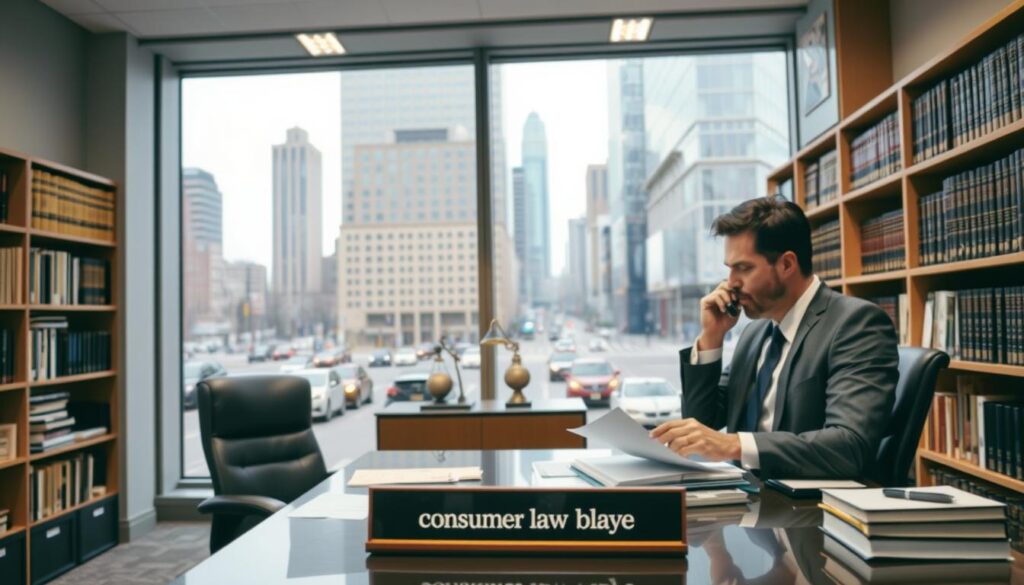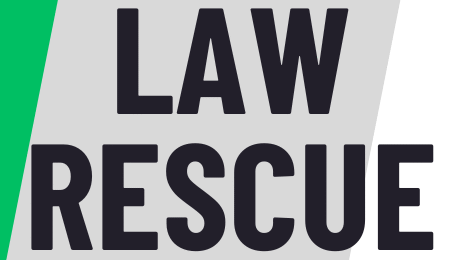Do you know your rights as a consumer? And how to protect them from unfair business practices?
It’s important to understand your legal protections in today’s market. Many consumer law issues come up, and having a lawyer can help a lot.
Finding the right legal advice can be tough. But it’s key to protect your interests. This guide will help you find a qualified consumer lawyer.
By following this guide, you’ll learn to handle complex legal issues. You’ll also find a lawyer who knows what you need.
Understanding Consumer Law and When You Need Legal Protection
Consumer law protects you from unfair treatment in the marketplace. It covers many legal protections. These are designed to stop businesses from being unfair or deceptive.
Common Consumer Law Issues in the United States
In the United States, consumers face many legal issues. Some common problems include:
- Unfair debt collection practices
- Deceptive advertising and marketing
- Product liability issues
- Violations of consumer protection laws
These issues can cause big financial losses and emotional stress.
Federal Consumer Protection Laws
Federal laws offer basic protection for consumers nationwide. Key federal laws include:
- The Fair Debt Collection Practices Act (FDCPA)
- The Consumer Product Safety Act
- The Federal Trade Commission Act
These laws control business practices and help consumers who have been treated unfairly.
State-Specific Consumer Protections
Each state also has its own consumer protection laws. These laws offer extra protection beyond federal laws. For example, some states have laws about:
- Contract terms
- Warranty requirements
- Consumer notification requirements
It’s important to know both federal and state laws that apply to you.
Signs You Need Professional Legal Assistance
If you’re dealing with consumer law issues, there are signs you need a lawyer. These include:
- Harassment by debt collectors
- Significant financial losses due to deceptive business practices
- Physical harm or injury due to a product or service
If you’re facing these problems, talking to a consumer law attorney near you or a local consumer protection attorney can help.
The Benefits of Hiring a Consumer Law Attorney
Having a specialized attorney for consumer law issues can greatly help. A top-rated consumer law firm offers expert guidance and representation. They help you understand and navigate complex legal processes.
How Specialized Legal Representation Protects Your Rights
An experienced consumer rights lawyer fights for your rights. They negotiate with creditors, represent you in court, and offer insights into consumer law. They help you understand your options and make informed decisions.
With their help, your rights are protected, and you get fair treatment under the law. This specialized representation is key to a good outcome in your case.
Cost-Benefit Analysis of Legal Representation
Hiring an affordable consumer law attorney might seem expensive. But it can save you money in the long run. A professional can avoid costly mistakes and help you recover damages or negotiate better terms.
Think about the benefits of legal representation. It could mean recovering financial losses or getting a better outcome. This helps you decide if hiring a consumer law attorney is right for you.
Preparing for Your Search: Identifying Your Specific Legal Needs
To find the right consumer attorney, you need to prepare first. This means understanding your case well. You’ll need to take several steps to identify your legal needs and find the best lawyer for you.
Documenting Your Consumer Issue
Start by documenting your consumer issue. This step is crucial. You’ll need to gather all important information about your case.
Creating a Timeline of Events
Make a timeline of your consumer issue. It should show the order of events and important dates. Include dates, times, and what happened.
Organizing Supporting Evidence
It’s key to organize your evidence well. This evidence might include documents, receipts, and contracts. Proper organization helps your lawyer understand your case better.
Setting Clear Objectives for Legal Representation
It’s important to set clear goals for your legal representation. Think about what you want to achieve, like financial compensation or corrective action.
Being clear about your goals helps you find the right lawyer. It also makes the legal process more efficient and effective.
Finding a Consumer Law Attorney Near Me: Comprehensive Search Methods
Looking for the right consumer law attorney near you? You need a smart search using different methods and resources. It’s key to check out many options to find a top consumer law firm that fits your needs.
Online Legal Directories and Resources
Start with online legal directories to find a consumer law attorney. Sites like Avvo, Martindale-Hubbell, and FindLaw help you filter by location and reviews. They show you an attorney’s experience, specializations, and what clients say. This way, you can make a list of potential lawyers who know consumer law well.

10 Tips Before Choosing the Right Lawyer in the US
Personal and Professional Referrals
Word of mouth is also a great way to find a good consumer law attorney. Ask people you know who’ve had similar issues. Also, financial advisors or other lawyers might recommend someone they trust. These referrals give you a peek into an attorney’s skills and how they communicate.
Local Bar Association Referral Services
Local bar associations have referral services for finding consumer law attorneys. They check if the lawyers are good at handling consumer law cases. By reaching out to your local bar association, you get a list of lawyers who know consumer protection laws well.
Using these search methods, you can find and compare consumer law attorneys near you. This ensures you get the best legal help to protect your rights.
Evaluating Attorney Credentials and Experience
Checking the credentials and experience of a consumer law attorney is key. It ensures you get expert consumer law representation. Knowing an attorney’s qualifications can greatly affect your case’s outcome.
Verifying Licensing and Specializations
First, verify the attorney’s licensing and specializations. Make sure they are licensed in your state. Also, look for any special training or certifications in consumer law. An experienced consumer rights lawyer will have a strong educational background and may be certified by groups like the National Association of Consumer Advocates.
Assessing Experience in Similar Consumer Cases
It’s important to check if the attorney has experience in cases like yours. Look for someone with a good track record in consumer law. Ask about their experience, the cases they’ve handled, and their success rates. An affordable consumer law attorney with the right experience can offer valuable insights and effective help.
Researching Disciplinary History and Professional Standing
Also, research the attorney’s disciplinary history and professional standing. Check with your state’s bar association for any disciplinary actions. Look at online ratings and reviews from other clients to see their reputation and professionalism. This ensures you’re hiring a reputable and skilled attorney.
By carefully checking an attorney’s credentials and experience, you can make a smart choice. This way, you can get the legal help you need.
Researching Potential Attorneys’ Reputations and Track Records
To find a good consumer law attorney, you need to check their reputation and past cases. This research shows their skills and success in similar cases.
Reading Client Reviews and Testimonials
Client reviews and testimonials are key to understanding an attorney’s reputation. They share their experiences with the attorney’s professionalism and results. Look for these on the attorney’s website and on sites like Avvo or Martindale-Hubbell.
Focus on the overall rating and specific comments in reviews. A top-rated firm will have high ratings and positive feedback about their services.
Checking Ratings on Legal Platforms and Case Outcomes
Legal platforms and case outcomes also offer valuable insights. Sites like Super Lawyers and the Better Business Bureau provide ratings based on peer reviews and client feedback.
| Platform | Ratings/Reviews | Case Outcomes |
|---|---|---|
| Avvo | Rated 9.5/10 | 85% success rate |
| Martindale-Hubbell | AV Preeminent | 90% success rate |
| Super Lawyers | Rising Star | 80% success rate |
By researching an attorney’s reputation and track record, you can make a better choice. This ensures your case is in good hands with a proven professional.
Preparing for Initial Consultations with Consumer Law Attorneys
To get the most out of your first meeting with a consumer law attorney, be well-prepared. This is your chance to see if they’re the right fit for your case. Being ready will help you make the most of this meeting and start a successful partnership.
Essential Documents to Gather Before Meeting
Before you meet, collect all important documents for your case. This includes contracts, letters from the other side, and any receipts or records. Having these documents ready will help your attorney understand your situation fast and give better advice.
- Contracts or agreements related to your issue
- Correspondence with the company or individual involved
- Receipts or records of transactions
- Any previous legal documents or notices
Critical Questions to Ask During Your Consultation
It’s important to ask the right questions during your meeting. This will help you understand their approach and if they’re right for your case. Think about asking about their experience and how they handle cases like yours.
Questions About Experience and Approach
Knowing about the attorney’s background and strategy is key. Ask about their experience with similar cases and how they handle consumer law issues. Also, find out how they communicate with clients.
Questions About Your Specific Case
Ask about the possible outcomes of your case and the steps they’ll take. Also, ask about the strengths and weaknesses of your case. This will help you understand what to expect and how they can help you.
Red Flags to Watch For During Consultations
Be careful during your meeting for any signs that the attorney might not be right for you. Look out for unclear communication, too-good-to-be-true promises, or unclear fees or methods.
Understanding Fee Structures and Payment Options
Before you hire a consumer law attorney, it’s key to know about different fees and payment plans. This knowledge helps you choose wisely based on your budget and legal needs.
Common Fee Arrangements in Consumer Law Cases
Consumer law attorneys offer several fee plans to fit different client needs. You’ll often find hourly rates, flat fees, and contingency fees.
Hourly Rates vs. Flat Fees
Hourly rates are based on the time spent on your case. Flat fees are a single payment for a service. Hourly rates are good for complex cases needing lots of legal work. Flat fees are clear and predictable for simple legal issues.
Contingency Fee Arrangements
Contingency fees are paid only if you win your case. They’re a percentage of the damages awarded. This is great for those who can’t pay upfront legal fees.
| Fee Arrangement | Description | Benefit |
|---|---|---|
| Hourly Rate | Charged based on time spent | Flexible for complex cases |
| Flat Fee | One-time payment for a service | Predictable costs |
| Contingency Fee | Percentage of awarded damages | No upfront costs |
Negotiating Fees and Payment Plans
You can talk about fees and payment plans with your attorney. Share your financial situation and what you expect. This can lead to a fair agreement for both sides.
Additional Costs and Expenses to Consider
There are costs beyond your attorney’s fees. Think about filing fees, expert witness fees, and costs for document preparation. Knowing these can help you plan your legal expenses better.
Evaluating Communication Styles and Accessibility
It’s key to check how well a consumer law attorney communicates and how accessible they are. Good communication is crucial for a strong lawyer-client bond. It greatly affects the success of your case.
Assessing Responsiveness and Availability
How fast and available a lawyer is shows their dedication to your case. You should get quick answers to your questions and updates on your case. Here’s what to look for:
- How quickly they respond to your first contact
- How they handle phone calls and emails
- If they can meet you in person or over the phone
| Criteria | Excellent | Average | Poor |
|---|---|---|---|
| Response Time | Within 1 hour | Within 4 hours | More than 24 hours |
| Availability | Flexible, fits your schedule | Limited, but okay | Very hard to schedule |
Ensuring Clear Communication Channels and Expectations
It’s important to have clear communication and set the right expectations. Talk about how you want to communicate and how often you’ll get updates.
To be clear, ask lawyers about their communication habits, like:
- How they’ll keep you updated on your case
- How they handle urgent matters
- How they communicate with others involved in your case
By looking closely at a lawyer’s communication style and how accessible they are, you can choose wisely. This choice can help your case succeed.
Making Your Final Decision: Comparing Multiple Consumer Law Attorneys
After finding potential consumer law attorneys, it’s time to choose the best one. This step is crucial. You need to look at each attorney’s strengths to find the right fit for your case.
Creating a Comparison Matrix of Potential Attorneys
Comparing attorneys is easier with a comparison matrix. This table should have important factors like:
- Attorney’s experience in consumer law
- Reputation and client reviews
- Fee structures and payment options
- Communication style and responsiveness
- Success rate in similar cases
By using a table, you can see each attorney’s good and bad points. Here’s what it might look like:
| Attorney | Experience | Reputation | Fees | Communication |
|---|---|---|---|---|
| Attorney A | 10 years | Excellent | Contingency | Responsive |
| Attorney B | 5 years | Good | Hourly | Regular updates |
This comparison helps you choose the best attorney for you.
Balancing Objective Criteria with Personal Comfort
While experience and fees are key, feeling comfortable with your attorney is also vital. You should trust them to represent you well and feel at ease with how they communicate.
Think about these points to judge personal comfort:
- How well did the attorney understand your case during the consultation?
- Were your questions answered clearly and satisfactorily?
- Did the attorney show empathy and understanding of your situation?
- How accessible is the attorney for follow-up questions or concerns?
By considering both, you can choose an attorney who meets your legal needs and gives you peace of mind.

The Formal Hiring Process: Retainer Agreements and Engagement Letters
Choosing a consumer law attorney starts the hiring process. This includes understanding retainer agreements and engagement letters. These steps are key to forming a strong attorney-client relationship. They also outline the work, responsibilities, and terms of engagement.
A retainer agreement is a contract between you and your attorney. It details the services, fee structure, and responsibilities of both parties. It’s important to know the terms and conditions to feel comfortable with the agreement.
Understanding Legal Contract Terms and Conditions
When looking at your retainer agreement, focus on the legal terms and conditions. This includes the fee structure, the scope of work, and any costs or expenses. It’s crucial to ask questions if you’re unsure about any aspect of the agreement.
- Review the fee structure to understand how your attorney is compensated.
- Clarify the scope of work to ensure it covers your needs.
- Understand any additional costs or expenses you may be responsible for.
Essential Elements in Your Attorney-Client Agreement
Your attorney-client agreement should have key elements to protect your interests and ensure a good working relationship. These elements include a clear service description, payment terms, and communication protocols.
| Element | Description |
|---|---|
| Scope of Work | Detailed description of the services your attorney will provide. |
| Fee Structure | Explanation of how your attorney will be compensated, including any retainer fees, hourly rates, or contingency fees. |
| Communication Protocols | Guidelines on how your attorney will communicate with you, including frequency and method of updates. |
By carefully reviewing and understanding your retainer agreement and engagement letter, you can ensure a strong foundation for your attorney-client relationship. This will help achieve a successful outcome for your consumer law case.
Building an Effective Working Relationship with Your Consumer Law Attorney
The success of your legal case depends a lot on your relationship with your consumer law attorney. A good partnership can greatly affect your case’s outcome. It’s key to start with a strong, collaborative dynamic.
Setting Realistic Expectations and Boundaries
To have a successful partnership, setting clear expectations and boundaries is crucial. You need to know what your attorney can do, what your case might achieve, and when it might end. Clear communication about your goals helps avoid confusion and ensures you’re both working towards the same goals.
Talking about fees, how you’ll communicate, and how quickly you’ll hear back is important. Setting these boundaries helps avoid problems and makes the process smoother.

Maintaining Productive Communication Throughout Your Case
Keeping communication open and productive is key throughout your case. Be quick to respond to your attorney’s requests and keep them informed of any new developments. Regular updates help your attorney stay on track and make smart decisions for your case.
Also, don’t be shy to ask questions or clarify anything you’re unsure about. Good communication goes both ways. Being proactive can really improve your working relationship with your consumer law attorney.
Conclusion: Securing the Legal Protection You Deserve
You now know why hiring a consumer law attorney is key. This guide helps you find the right lawyer for your needs. You can trust the process to find the best legal help.
A consumer law attorney is vital for protecting your rights. They handle complex issues, negotiate with businesses, and seek compensation. Getting a good lawyer is a big step towards winning your case.
When choosing a lawyer, think about their experience, reputation, and how they communicate. This will help you make a smart choice. You’ll get the legal protection you need.
Frequently Asked Questions
What is a consumer law attorney, and in what ways may they assist me?
A consumer law attorney advocates for your rights. They assist with unjust debt collection, fraud, and legal infractions.
What are the indicators that I require a consumer law attorney?
You may require one if you are harassed by debt collectors, have been defrauded, or if your rights are disregarded.
What advantages are associated with using a consumer law attorney?
They provide experienced counsel, manage negotiations, advocate on your behalf in court, and safeguard your rights.
What is the method for locating a trustworthy consumer law attorney in my vicinity?
Conduct online research, solicit referrals, or reach out to local bar associations for recommendations.
What criteria should I consider while assessing a consumer law attorney’s qualifications?
Verify their licensure, areas of expertise, professional experience, and disciplinary record.
What steps should I take to prepare for an initial session with a consumer law attorney?
Gather essential papers, establish a timetable, and systematically arrange your evidence.
What are the typical fee structures for consumer law attorneys?
They may bill hourly, impose a fixed price, or operate on a contingency basis. Ascertain their fees prior to engagement.
What methods may I employ to evaluate a consumer law attorney’s communication style and accessibility?
Observe their response time, accessibility, and clarity of explanations.
What elements should be incorporated into my attorney-client agreement?
It should delineate their actions, the payment amount, and the responsibilities of both parties.
What strategies should I employ to cultivate a productive connection with my consumer law attorney?
Establish explicit expectations, engage in transparent communication, and address their inquiries promptly.
Is it possible to negotiate the rates with my consumer law attorney?
Indeed, you may discuss fees prior to their engagement.
What indicators signify a reputable consumer law attorney?
Seek a robust history of performance, favorable client testimonials, and transparent communication.

